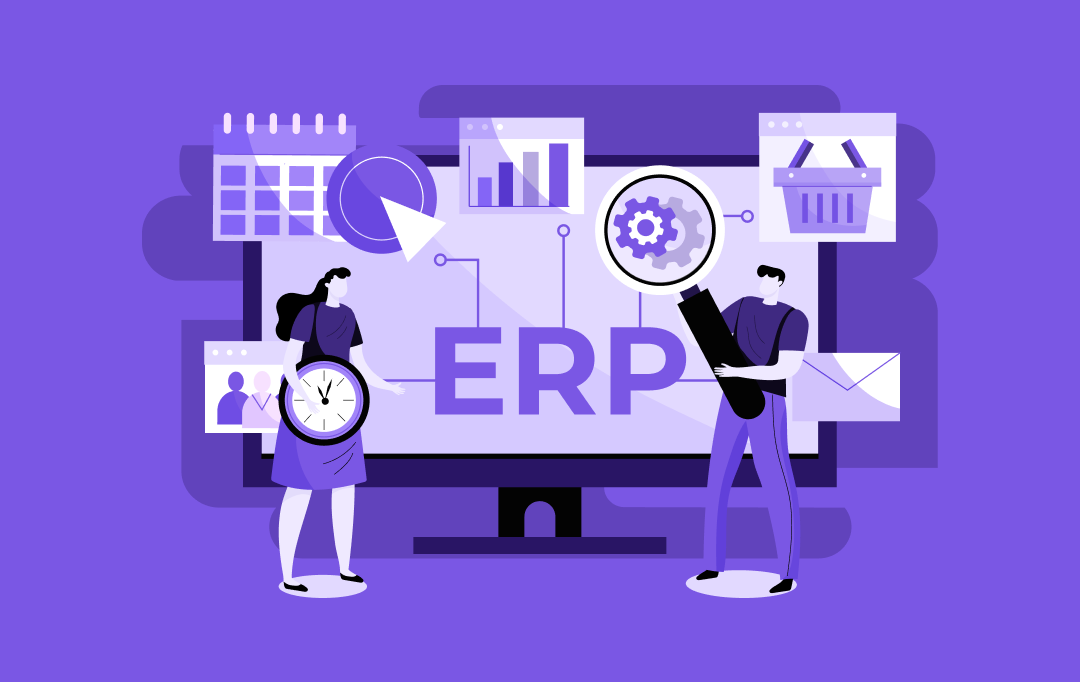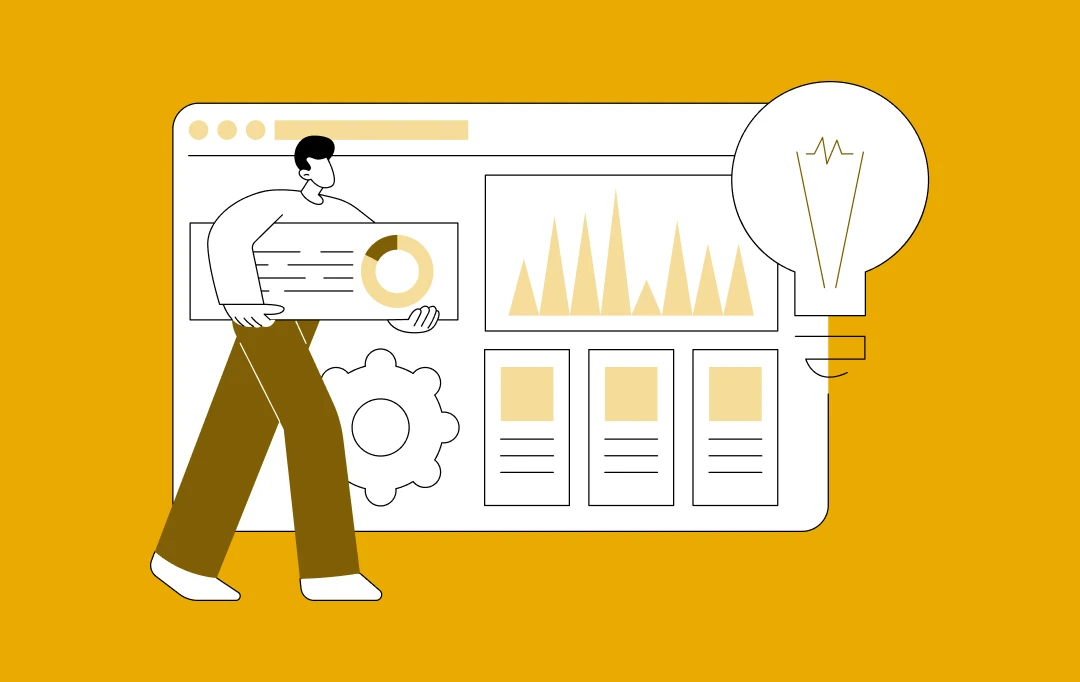- Game-Changing Benefits of Waste Management Software Development
- Smart Collection Scheduling
- Real-Time Data Insights
- Intuitive Reporting Tools
- Data Analytics
- Cost Savings
- Environmental Compliance
- Industry-Wide Applications of Waste Management Software
- Municipal Waste Management
- Manufacturing and Industrial Waste Management
- Construction Waste Management
- Retail and Hospitality Industry Waste Management
- Healthcare Waste Management
- Educational Institutions Waste Management
- Agriculture and Food Processing Waste Management
- E-Waste Management
- How to Build Waste Management Software
- Market Research and Requirement Gathering
- Defining the App Scope and Features
- UI/UX Design
- Choose Tech Stack
- Development and Coding
- Testing and Quality Assurance
- Deployment and Launch
- Post-Launch Support and Maintenance
- Must-Have Features of a Waste Management App
- Waste Tracking
- Recycling Information
- Collection Schedules
- Barcode Scanning
- Waste Classification
- Waste Management
- Waste Compliance
- Bin Inventory
- Real-Time Analytics & Reporting
- Pick-Up Evaluation
- Cost Calculation
- Real-World Examples of Waste Management Software Applications
- Biffa Plc
- Cleanaway Waste Management
- Casella Waste Systems, Inc.
- Give Wings to Your Waste Management Vision with Appinventiv
- FAQs
Our planet is facing a serious challenge — waste management. Overflowing bins, missed pickups, and ever-growing mountains of trash piling up in our vicinities are pressing problems that impact communities and businesses alike.
According to Statista, global municipal solid waste generation is projected to increase by over 75% from 2020 to 2050 if no urgent action is taken. This would raise global waste output to nearly 3.8 billion metric tons by 2050, up from 2.13 billion tons in 2020.

In such a drastic scenario, why not leverage the latest technologies to address this dirty issue promptly? What if there were an advanced waste management software that could not only simplify waste handling but also make the process efficient, effective, and even insightful?
Here comes the waste champion — Waste Management Software Development!
Waste management software is a powerful tool for businesses, helping them streamline every stage of waste handling—from tracking and collection to recycling and environmental compliance. It keeps track of how much waste you produce, schedules optimal pickup times, and even optimizes disposal strategies, guiding businesses toward a more sustainable future and helping them minimize their environmental footprint.
Waste management might sound like a nuisance, but it is a reality we can’t ignore. Let’s face this reality with waste management software, a magic wand that clears our personal and professional clutter.
Game-Changing Benefits of Waste Management Software Development
Waste management software redefines how businesses handle their waste, minimizing the adverse effects of improper disposal, including habitat destruction, pollution, and health hazards. Apart from these key advantages, here are some other ways waste management app development can benefit businesses:

Smart Collection Scheduling
Gone are the days of relying on guesswork for waste collection times. With the right waste management software, your organization can streamline processes, automate scheduling, and optimize collection routes. This ensures timely pickups, reduces missed collections, and helps maintain a clean environment.
Real-Time Data Insights
Waste management software offers real-time data insights that help businesses track waste generation, monitor disposal methods, and identify trends. With this information at your fingertips, you can make informed decisions that lead to better waste management practices.
Intuitive Reporting Tools
Reporting should not feel like a tiresome chore, and with user-friendly reporting tools, it can never be! Waste management software offers intuitive dashboards that present data in a clear and engaging manner.
Businesses can easily access this dashboard to gain valuable insights about overflowing bins, disposal methods, missed collections, and recycling rates. This detailed reporting empowers authorities to make informed decisions and address issues promptly.

Data Analytics
Data analytics is not just a buzzword; it is a game-changing feature of waste management software. The software analyzes historical and real-time data on waste generation, providing actionable insights that help businesses identify trends and refine their waste management strategies over time. This data-driven decision-making leads to more efficient operations and better resource utilization.
Cost Savings
Who doesn’t want to save a few bucks on their daily operational processes? Waste management software can significantly reduce these operational costs by optimizing routes and schedules. Less fuel consumption, fewer missed pickups, and more efficient resource use translate into significant cost savings that you can reinvest into your business.
Environmental Compliance
Understanding your operations’ environmental footprint is crucial in today’s world. Waste management software includes features for ecological impact assessment, which allows businesses to gauge the effectiveness of their waste management practices and identify areas for improvement. This proactive approach ensures compliance with regulations and aligns with sustainability goals.
Also Read: Developing an IoT-Based Smart Water Management System
Industry-Wide Applications of Waste Management Software
You might wonder where you can use waste management software. Well, waste management solutions find applications across various industries, including manufacturing, hospitality, and retail, anywhere waste is generated. Here are some practical applications of waste management software in different domains:

Municipal Waste Management
Cities worldwide use waste management software to optimize collection routes, track waste generation, and improve recycling rates. Municipalities can make more informed decisions about waste collection schedules and reduce fuel consumption by analyzing waste volume and type data. This leads to cleaner cities and healthier communities.
Manufacturing and Industrial Waste Management
Waste management software is critical for monitoring and managing industrial waste in manufacturing. Authorities can use the software to track production by-products, manage hazardous waste, minimize waste generation, reduce costs, and comply with environmental standards.
Construction Waste Management
Construction sites generate large volumes of waste materials like concrete, metals, and wood. Waste management software helps construction companies track, segregate, and dispose of these materials efficiently. By identifying reusable and recyclable materials, companies can reduce disposal costs and decrease landfill use.
Retail and Hospitality Industry Waste Management
The retail and hospitality industry can leverage waste management software to manage food waste, packaging, and other disposables. The software helps manage inventory, identify items nearing expiration, organize waste pickups, and reduce waste generation and disposal costs. It also allows these businesses to support sustainable practices and improve customer satisfaction.
Healthcare Waste Management
Healthcare facilities generate medical waste, which can be hazardous to human health. Thus, requires strict compliance with disposal regulations. Waste management software offers a reliable way for providers to track and document waste generation, ensuring every disposal step follows strict safety and health compliances. By using this technology, healthcare facilities can minimize contamination risks and protect their staff and patients.
Educational Institutions Waste Management
Universities and schools implement waste management software to manage campus-wide waste, such as paper, plastics, and food waste. The software provides insights into waste patterns and assists in setting up recycling programs. By actively engaging with waste reduction efforts, educational institutions can lower operating costs and reduce environmental impact.
Agriculture and Food Processing Waste Management
Agricultural and food processing industries generate plenty of organic waste, which, when managed smartly, can be transformed into valuable compost or even energy. Waste management software helps these sectors track waste, optimize disposal, and reduce their environmental footprint. This technology supports a more sustainable and efficient agricultural industry by turning by-products into resources.
E-Waste Management
Industries such as finance, aviation, and IT generate large volumes of electronic waste through outdated devices like computers, servers, and other digital equipment. Software development for waste management helps these sectors securely track, recycle, and dispose of electronics, assisting businesses in minimizing environmental impact and upholding data security.
How to Build Waste Management Software
Waste disposal software development involves a structured process that ensures the final product effectively addresses waste management practices. Here is a step-by-step overview of the waste management software development process:

Market Research and Requirement Gathering
The first step in waste management mobile application development starts with conducting in-depth market research and gathering requirements from stakeholders, including businesses, waste management companies, and end-users. This phase will help you understand your tailored business needs, identify opportunities, and outline key features of waste management software.
Defining the App Scope and Features
Once you have conducted market research and gathered enough data, the next step is to define the app’s scope and outline its core features. This includes determining functionalities like real-time monitoring, data analytics, user-friendly reporting, and incentivizing recycling that ensure the app aligns with waste management goals.
UI/UX Design
A user-friendly interface is the life and soul of waste management software that decides its success in the market. Accordingly, at this phase, your development team focuses on creating an intuitive UI/UX and wireframes to visualize the app’s layout and functionality, making it easy for users to navigate the app, access features, and find information quickly.
Choose Tech Stack
Choosing the right tech stack is one of the most crucial considerations when opting for waste management software development. To develop waste management software, you can consider the following tech stack. While this is not the only available option, it could be an ideal combination for creating your dream app for waste management:
| Category | Recommended Tech Stack |
|---|---|
| Server Provider | Azure, AWS, Apache |
| Programming Languages | Python, PHP, Ruby |
| Databases | MySQL, MongoDB, PostgreSQL |
| Backend Frameworks | Django, Node.js |
| Front-End Frameworks | React Native, ReactJS, Angular |
| Pop-up and Form Builder | Poptin |
| Payment Gateway | Amazon Payment, Stripe, Wepay, PayPal |
| Listing API | Foursquare API |
Development and Coding
With a clear wireframe, it is time to code the programs and bring your app idea to life. This phase involves building the front-end (user interface) and back-end (server-side) components. At this stage, your development team integrates the pre-defined features into the application, ensuring that the app is functional and meets your expectations.
Testing and Quality Assurance
After development, before you deploy your app to the intended platform, you need to test it against various parameters to ensure it functions as intended. At this phase, the quality assurance team conducts functional, usability, performance, and security testing to ensure the app is free from bugs, glitches, and usability issues.
Deployment and Launch
Once you are quality-assured about the app’s performance, you can bring it to the market for end users. This involves deploying the app on relevant platforms (e.g., iOS, Android) while meeting all guidelines and requirements for Google and Apple app stores.
Post-Launch Support and Maintenance
Even if development and deployment seem to be the final stage of the waste management app development, the actual process doesn’t end with the launch. It is an ongoing journey that involves continuous maintenance to address user feedback, fix bugs, release updates, and add new features based on evolving waste management practices.
Must-Have Features of a Waste Management App
An effective waste management app should include more than generic features that drive efficiency, promote sustainability, and provide actionable insights for users. Here is a breakdown of key features that you must consider for waste recycling software development

Waste Tracking
This feature offers real-time visibility into waste movement from collection to disposal, ensuring accountability and transparency, reducing potential losses, and improving logistics.
Recycling Information
It is like a pocket guide to recycling, offering valuable insights and education to clients on recycling processes, positioning your business as a leader in sustainability and eco-friendly practices.
Collection Schedules
Say goodbye to missed pickups! This feature automates waste pickup schedules based on usage patterns, helping reduce missed collections, improve customer satisfaction, and lower operational costs.
Barcode Scanning
A quick scan adds precision to the sorting and tracking process. It simplifies managing diverse waste types efficiently while reducing errors and streamlining operations.
Waste Classification
Sorting can be made easy with this feature. It categorizes waste types so users always know what is hazardous, recyclable, or compostable, keeping things safe and sustainable.
Waste Management
It provides an integrated view of all waste-related operations, allowing businesses to monitor and manage everything from collection to disposal more effectively and efficiently.
Waste Compliance
This feature helps you stay on top of regulations. It tracks compliance needs, so you never have to worry about missing important rules and regulations.
Bin Inventory
Knowing the number, type, and condition of bins is crucial. This feature informs you about the bin inventory so you can never run short on bins when needed.
Real-Time Analytics & Reporting
This is one of the most crucial features of waste management software. It turns waste data into valuable insights, helping you see waste trends, analyze patterns, and make data-driven decisions.
Pick-Up Evaluation
This feature helps you review how efficient the pickup was after each collection—were there missed bins, delays, or unused routes? It is all about continuous improvement.
Cost Calculation
It provides a quick view of waste management costs, from collection expenses to fuel use, helping you identify cost-saving opportunities and increase profitability.
Real-World Examples of Waste Management Software Applications
The challenges of waste management companies are significant concerns that demand serious attention. Waste disposal software development is a way to address these issues effectively. Still skeptical?
Well, here are some real-world examples of its applications that demonstrate how software development for waste management can redefine the entire process and transform challenges into opportunities.

Biffa Plc
Biffa plc, a prominent UK-based waste management company, offers integrated solutions across multiple sectors, including waste collection, recycling, and energy recovery. Committed to reducing the environmental impact of waste disposal, Biffa is known for its innovative approaches. It invests in advanced technologies and infrastructure to enhance recycling capabilities and decrease reliance on landfills.
Cleanaway Waste Management
With a strong presence in the Asia-Pacific region, Cleanaway is a leading waste management company in Australia. Their software provides comprehensive services, including waste collection, recycling, and disposal. Committed to sustainability, Cleanaway effectively manages solid and liquid waste while investing in advanced technologies to improve recovery and recycling rates.
Casella Waste Systems, Inc.
Based in the United States, Casella Waste Systems is one of the best waste management software types that help enhance operational efficiency and sustainability. By employing data analytics, the company optimizes collection routes, tracks waste generation trends, optimizes recycling methods, and improves customer service, ultimately reducing costs and environmental impact.

Give Wings to Your Waste Management Vision with Appinventiv
The global waste management market is growing exponentially, driven by a rising need for comprehensive solutions to tackle waste management challenges. Accordingly, the market, valued at $1.3 trillion in 2022, is projected to reach $1.96 trillion by 2030, growing at a CAGR of 5.4% from 2023 to 2030.
This impressive figure suggests that the waste management industry is a treasure trove ripe for investment opportunities. Therefore, if you are interested in software development for waste management, now is the best time to give wings to your vision.
It is where Appinventiv comes in.
No matter if you want to build waste management software from scratch or just revamp the existing one, our team of 1600+ tech nerds is always ready to help. We can assist you with everything from IT consulting to UI/UX design, MVP development, full-fledged software creation, next-gen tech integration, and even post-launch support and maintenance services.
With around a decade of industry experience and a proven track record of delivering 3000+ successful solutions for 35+ industries, we can be your trusted tech partner.
As a premium app and software development company we have experience working with renowned businesses, including IKEA, KFC, Adidas, Edfundo, ility, etc. Some well-known firms, like Clutch, Good Firms, Deloitte, Statista, etc., have awarded us different awards for delivering quality services to SMEs, enterprises, and Fortune 500 companies.
So, what are you waiting for? Contact us to build waste management software now.
FAQs
Q. How long does it take to develop waste management software?
A. The time it takes to build waste management software ranges between 4 months and 1 year. For instance, the timeline for developing basic zero waste management software solutions with limited features is between 4 and 6 months. On the other hand, the timeline can extend from 9 months to a year or more for more complex waste-tracking software development with advanced features.
Discuss your project idea with us and receive a tailored quotation for a more accurate estimate of the waste management mobile application development timeline.
Q. How much does it cost to build waste management software?
A. Waste management software development costs range between $30,000 and $300,000. However, this is a rough estimate; the actual cost can increase or decrease depending on various factors, including the app’s complexity, feature list, tech stack used, platform compatibility, etc.
Here is the waste management software development cost breakdown:
- For basic application development – $30,000 to $100,000
- For medium complex app development – $100,000 to $150,000
- For advanced application development – $150,000 to $300,000
To get a more precise estimate on waste management software development cost, contact our efficient waste management software developers and get a tailored quotation.
Q. What is the monetization model of waste management software?
A. Here are the four most common monetization models of waste management software:
Subscription-based model
- Pay-per-use
- Advertising-based model
- Freemium Model
- Data monetization model
Q. How does waste management software work?
A. Waste management software integrates various technologies and processes to streamline waste collection, tracking, recycling, and disposal. It uses advanced analytics to translate data collected from your bins into actionable insights, empowering you to enhance your waste management services. You can obtain data on valuable metrics, such as:
- The number of bins required to prevent overflowing waste
- The number of collection services that can be optimized
- The amount of fuel that can be saved
- The driving distance that could be saved
- Areas at risk of overflow
These data metrics will help businesses transform their waste practices into greener, cleaner, and smarter avenues.
Q. What are some popular types of waste management software?
A. Here are some popular types of waste management software:
- Commercial Waste Management Software
- Automated Waste Management Software
- Food Waste Management Software
- E-Waste Management Software
- Construction Waste Management Software
- Waste Management Fleet Software
- Waste Management Fleet Tracking Software
- Liquid Waste Management Software
- Solid Waste Management Software
- Waste Management Broker Software
- Waste Management Billing Software
- Municipal Waste Management Software
- Medical Waste Management Software
- Industrial Waste Management Software
- Mobile Waste Management Software
- Domestic Waste Management Software
- Waste Management Computer Software
- Private Waste Management Collection Software
- Waste Management Business Software


- In just 2 mins you will get a response
- Your idea is 100% protected by our Non Disclosure Agreement.

Custom Development or White Label Solutions: Which is Right for Your Business?
Key takeaways: 77% of companies are prioritizing digital transformation; the right tech approach is crucial for staying competitive. Custom development offers tailored solutions for unique needs, flexibility, and long-term scalability. Whereas, white-label solutions provide quick market entry, cost-efficiency, and easy customization for standard needs. Appinventiv’s expertise helps you navigate custom development vs white-label to choose…

ERP Integration in Australia - Why It Is Essential and How to Do It Right
Key takeaways: ERP integration enables operational efficiency, reduced costs, and enhanced decision-making. Healthcare, finance, manufacturing, retail, and all the other sectors are benefiting from ERP integrations in Australia. While ERP integration can be costly, ranging from AUD 45,000 - AUD 450,000, it leads to significant long-term savings and scalability. Compliance with Australian regulations is critical,…

Predictive Analytics Software Development - Features, Benefits, Use Cases, Process, and Cost
Key Takeaways Predictive analytics helps businesses shift from “what has happened” to "what will happen," enabling proactive strategies rather than reactive ones. Real-time analytics and AI integration are driving the growth of predictive analytics, making it more accurate, accessible, and critical for business success. Custom predictive analytics solutions can enhance customer satisfaction, reduce costs, and…

















